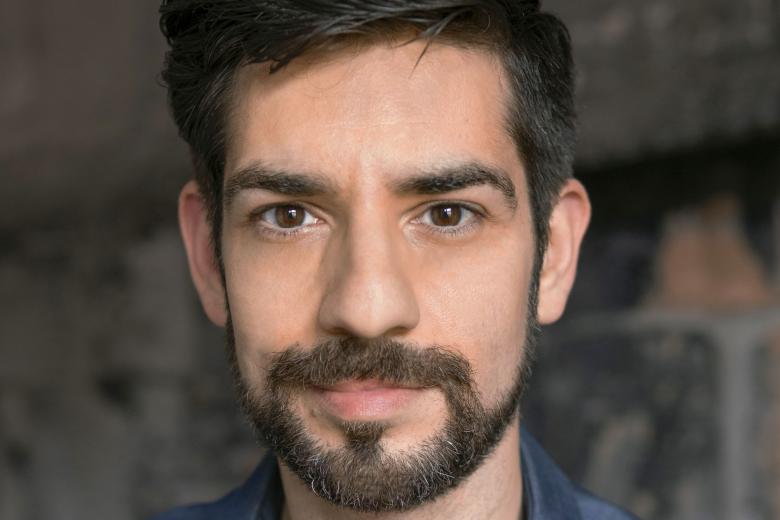Five Veni grants for UM researchers
Five young Maastricht University researchers have been awarded a Veni grant of up to 250,000 euros from the Netherlands Organisation for Scientific Research (NWO). Lars Hausfeld, Lotte Lemmens, Lucas Lindeboom, Veerle Melotte and Paul Wieringa are now set to further develop their own research ideas over the next three years. Of the 1,127 applications, 154 were approved (a success rate of 14%).
The five researchers, the first two working for the Faculty of Psychology and Neuroscience, and the last three for the Faculty of Health, Medicine, and Life Sciences, were asked to write a brief description of their research proposal:
Not only background noise: Multimodal investigations on the neural processing of unattended sounds in natural environments.
Dr Lars Hausfeld – Neuroscience
Imagine yourself sitting in a noisy café talking to a good friend. Following your friend’s voice relies on actively ignoring noise. In this project, I examine the fate of the distracting sounds and aim to develop a device that lowers intensity of surrounding chatter to better follow your own conversation.
Beating the Binge
Dr Lotte Lemmens – Clinical psychology
Binge eating, the uncontrolled consumption of large amounts of food in a short timeframe, is a common phenomenon with many negative consequences. I will examine the factors that predict binge eating in daily life in order to find out how and when to intervene to prevent binge eating episodes.
Live, liver, life!
Dr Lucas Lindeboom – Medical and Technical Science, Physiology
One out of three people have stored unhealthy amounts of fat in their liver and it is currently unknown what drives this fat accumulation in the liver. I will develop innovative Magnetic Resonance Spectroscopy techniques to non-invasively investigate the pathways of fat synthesis and fat disposal in the liver.
Nervous gut - the enteric nervous system, a so far unnoticed component of the tumor microenvironment, orchestrated by NDRG4
Dr Veerle Melotte – Pathology
It is well-known that components of the tumor-microenvironment play an important role in the development of colorectal cancer. I will investigate whether the enteric nervous system, an neglected member of the tumor-microenvironment, plays a role in the development of colorectal cancer and can be used as a potential therapeutic target.
NeuroBeta: Creating an organ-on-a-chip screening platform of functionally innervated Islets of Langerhans
Dr Eng. Paul Wieringa – Complex Tissue Regeneration
Nerves in the pancreas are poorly understood, although evidence suggests nerves regulate pancreatic function and neural malfunction leads to Diabetes. A 3D in vitro platform will be developed that recreates the nerve-pancreas circuit for the study of neural regulation of pancreatic function and the development of relevant therapies.

The Innovational Research Incentives Scheme
Alongside Vidi and Vici, Veni is part of NWO’s Innovational Research Incentives Scheme. Veni is aimed at outstanding researchers who have recently obtained their doctoral degrees. This NWO scheme allows researchers to submit their own topics for funding, thus promoting curiosity-driven and innovative research. NWO selects researchers based on quality, the innovative nature of their research, the anticipated scientific impact of their research proposals, and opportunities for knowledge utilisation.
An overview of all Veni's can be found on www.nwo.nl
On twitter NWO shared a few short interviews with laureates.
Also read
-
King Willem-Alexander to attend Maastricht University’s 50th anniversary
Maastricht University (UM) will celebrate its 50th anniversary in 2026. On Friday 23 January, the jubilee year will begin with the Dies Natalis, the official anniversary celebration. His Majesty the King will be in attendance.
-
ERC Consolidator grant for dr. Ryszard Auksztulewicz
Dr. Ryszard Auksztulewicz, assistant professor at the Faculty of Psychology and Neuroscience (FPN), has been awarded the ERC Consolidator grant for his research proposal entitled MemPred - Mnemonic and predictive influences on sensory processing: mapping the neural computations .
-
Costas Papadopoulos awarded Open Science NL grant
€1.5 million for Open Science Digital Infrastructure for 3D Scholarship